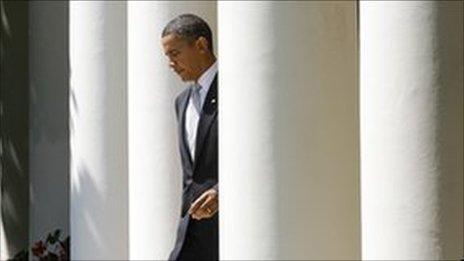Wall Street waits as Washington debates debt limit
- Published
- comments
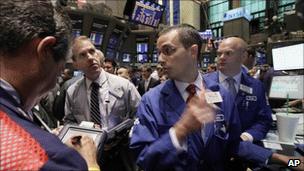
On the nervous trading floors of New York there is hope that some kind of deal can be done
Today on the New York Stock exchange I hear snatches of random political gossip amid the market tips.
"Taiwan is looking good."
"They can afford to pay more in taxes: they should pay it."
What's going on in Washington is of consuming interest.
The traders on the New York Stock Exchange are used to making snap decisions, making millions in an instant, on a hunch and good intelligence. From here the inability of politicians in Washington to close a deal looks crazy.
One trader, Ben Willis, told me: "We are very upset our elected officials are behaving like children, continually drawing lines in the sand and jumping over them.
"It's an embarrassment to the world. Today the Philippines told us that we had to take care of the dollar! I don't know what is left after that... the Ethiopians telling us how to grow crops? It's an embarrassment."
While there is a lot of shaking of heads, frustration and irritation, there is nothing like fear, let alone panic.
Always with an eye to the main chance, some think that even if the politicians drive off the cliff it will create new opportunities. However bad it gets someone will find a way to make money.
But the main point is that few think that is going to happen.
TV grandstanding
The people who make up what we call "the markets" don't exactly have faith in their politicians but they don't think they are stupid enough to fail to do a deal.
Another trader, Joe Greco, describes the mood as "optimistic but fairly agitated".
"Politicians are dragging this out when they are meant to be solving it, and they've had plenty of time. There's posturing by both Republicans and Democrats, who want credit and control and that's wearing on traders.
"As investors you make decisions on the go, when you see the news you are ready to react, to move one way or the other. Maybe there is not a lot of competition for the daytime Emmys and the guys in Washington want to be out there for the drama, out on TV just for the show of it."
The Tea Party claim that the US government won't really go broke even if there isn't a deal.
They say there would have to be some immediate cuts and the government would have to shuffle money around, but they insist that there's plenty of that.
They have something of a point. The 2 August deadline isn't an automatic trigger for disaster. But it has become a symbol.
If it is missed the markets won't be so sanguine. On 3 August the administration wouldn't be able to pay pensions. Then they wouldn't find enough money to pay defence contractors, drug companies and agribusinesses.
Unknown ramifications
But at Credit Suisse Ira Jersey says the more serious deadline would be 15 August. That is when the government has to pay interest on US Treasury bonds.
Missing that deadline, he says, would be "playing with fire".
"If we get to 15 August and they owe $32 billion (£20bn) you do risk a default. We don't know where it could end up. We don't understand the ramifications.
"It's never happened before but presumably it would be very bad. For risky assets. For confidence. For the long-term fiscal health of the country."
But he says the most intriguing thing is that people are almost putting their heads in the sand.
"The markets are not going to have a price for this until we get right up to this date. We don't want to believe they won't raise the debt ceiling. So the markets are not going to price that until we are very close."
This time next week the drama may be over. But it will have left a nasty taste in the money markets, and increased Wall Street's contempt for politicians.
- Published26 July 2011
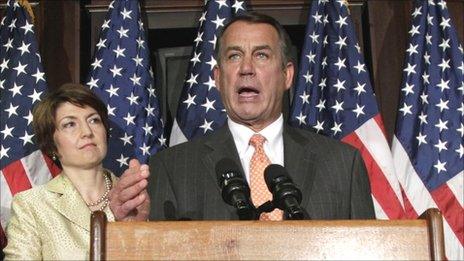
- Published26 July 2011
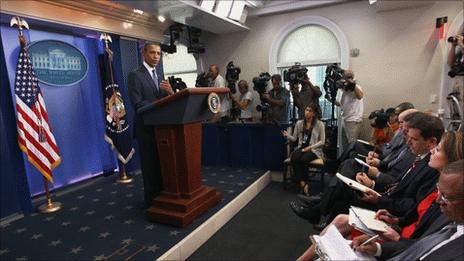
- Published26 July 2011
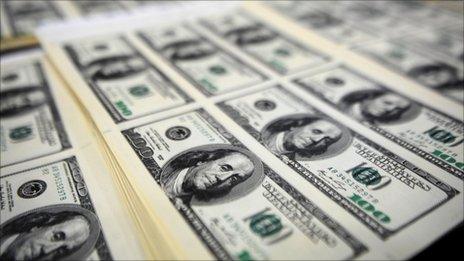
- Published2 August 2011
